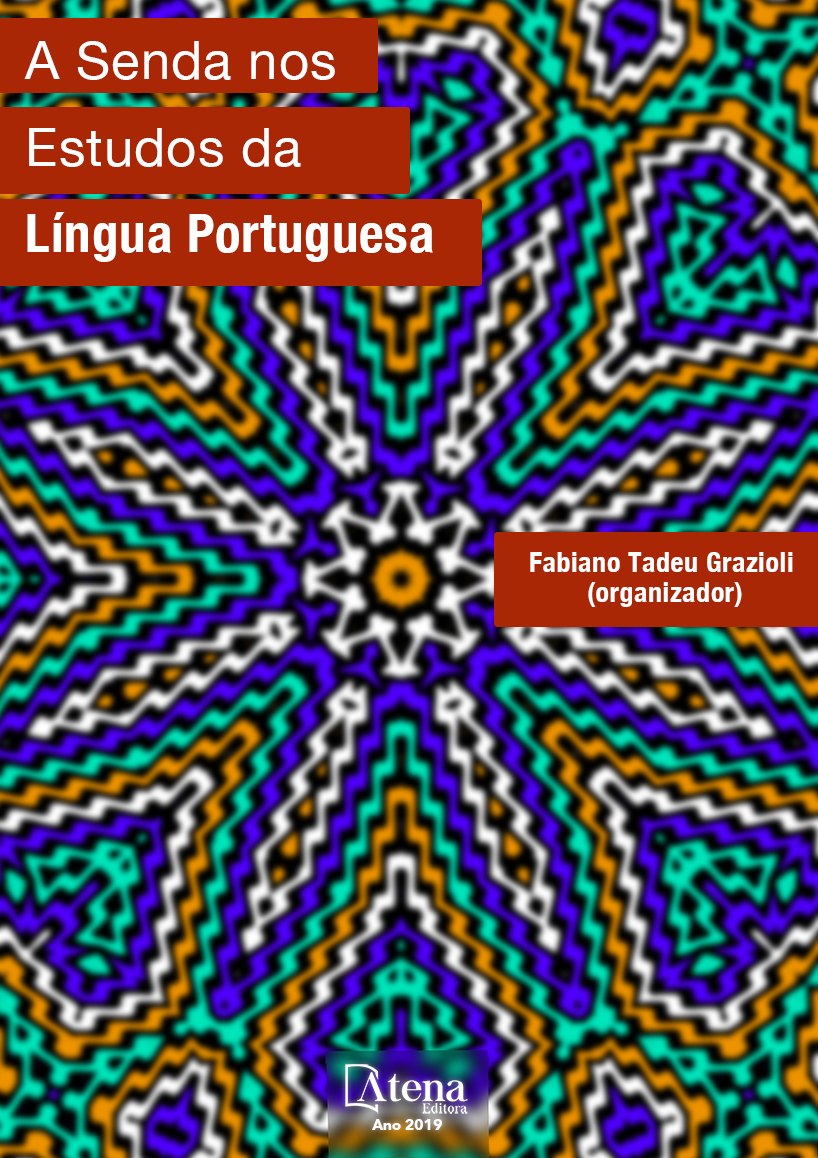
A DIDÁTICA DA ESCRITA NO ENSINO DE PORTUGUÊS
O trabalho com a língua portuguesa
via gêneros textuais é uma didática ainda
recente na rede de ensino brasileira, no
entanto, é possível vislumbrar resultados
produtivos, especialmente na prática voltada
à escrita (MACHADO, 2005; GUIMARÃES,
2006; MARCUSCHI, 2008, 2010). Assim, este
capítulo objetiva socializar, descrevendo e
refletindo sobre os resultados obtidos com uma
oficina elaborada para o ensino da escrita,
realizada em um oitavo ano do fundamental,
em uma escola municipal do sul do Brasil.
A partir de uma abordagem interacionista
sociodiscursiva da linguagem (BRONCKART,
2008, 2012), montamos um dispositivo, através
de uma sequência didática, com base no modelo
didático de gênero desenvolvido por Dolz,
Noverraz e Schneuwly (2010), com a finalidade
de trabalhar a escrita pelo gênero crônica.
Tomando o modelo da Escola de Genebra como
base, no primeiro encontro, contextualizamos
a proposta de escrita, seguindo com uma
produção inicial do gênero selecionado. A
leitura das crônicas produzidas pelos alunos
funcionou como diagnóstico para delimitar
os saberes a serem trabalhos nos módulos
desse dispositivo didático. Com a realização
das atividades nos três módulos previstos,
finalizamos a proposta com uma produção final.
A análise dos resultados obtidos com os textos
produzidos (inicial e final) comprovou nossa
hipótese de que o ensino de língua via gênero
textual não somente motiva o aluno a escrever,
mas também o faz refletir sobre o processo de
escrita, bem como buscar sanar as dificuldades
encontradas nessa prática social (DOLZ,
GAGNON, DECÂNDIO, 2010; WITTKE, 2015,
2016). Vale dizer que nossa proposta é parte
do projeto de pesquisa intitulado Estudos da
linguagem e da língua sob uma perspectiva da
Interação Verbal, do qual fazem parte bolsistas,
mestrandas e professoras universitárias de
duas Instituições brasileiras de Ensino Superior.
A DIDÁTICA DA ESCRITA NO ENSINO DE PORTUGUÊS
-
DOI: 10.22533/at.ed.9241924072
-
Palavras-chave: Ensino, Português, Escrita, Gênero Textual, Crônica, Sequência Didática.
-
Keywords: Teaching, Portuguese, Writing, Textual Genre, Chronic, Didactic Sequence.
-
Abstract:
The work with the Portuguese language via textual genres is a recent
teaching in the Brazilian education network. However, it is possible to glimpse
productive results, especially in writing practice (MACHADO, 2005; GUIMARÃES, 2006;
MARCUSCHI, 2008, 2010). So, the objective of this chapter is to socialize, describe
and reflect on the results obtained with an elaborate workshop for the teaching of
writing, held in an eighth grade of the fundamental, in a municipal school in the south of
Brazil. Based on a sociodiscursive interactionist approach to language (BRONCKART,
2008, 2012), we set up a device, through a didactic sequence, based on the didactic
model of gender developed by Dolz, Noverraz and Schneuwly (2010) for the purpose
of working the writing by the chronic genre. Taking the model of the Geneva School as
a base, in the first meeting, we contextualize the proposal of writing, following with an
initial production of the selected genre. The reading of the chronicles produced by the
students functioned as a diagnosis to delimit the knowledge to be work in the modules
of this didactic device. With the completion of the activities in the three modules,
we finalize the proposal with a final production. The analysis of the results obtained
with the texts produced (initial and final) proved our hypothesis that the teaching of
language via textual genre not only motivates the student to write, but also makes him
reflect on the writing process, as well as seek to heal the difficulties encountered in this
social practice (DOLZ, GAGNON, DECÂNDIO, 2010; WITTKE, 2015, 2016). It is worth
mentioning that our proposal is part of the research project titled Studies of language
and language from a perspective of Verbal Interaction, which includes fellows, masters
and university professors of two Brazilian Institutions of Higher Education.
-
Número de páginas: 15
- Cleide Inês Wittke
- Jossemar de Matos Theisen


